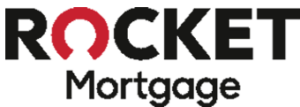The best investment property loans will allow you to purchase or refinance residential property. They will have a combination of low rates, long repayment terms, easy qualification requirements, and excellent customer service. Lenders may also have an easy application process with minimal required documentation.
If you’re looking for the best loan for investment property usage, here are our seven picks:
- Pennymac: Best overall for customer service on conventional mortgages
- RCN Capital: Best for low rates on long-term rental properties
- Kiavi: Best rental portfolio lender for borrowers with multiple properties
- Rocket Mortgage: Best online experience for conventional loans
- LendingOne: Best for long-term fix-to-rent rehabilitation loans
- Visio Lending: Best for vacation rentals
- Lima One Capital: Best for investors seeking large loan amounts
Best Investment Property Loans At a Glance
Estimated Starting APR | Maximum Loan Amount | Required Down Payment | Required Credit Score | Maximum Repayment Term | |
|---|---|---|---|---|---|
 | 8% | $2.095 million | 15% | 620 | 30 years |
 | 7.15% | $2 million | 20% to 30% | 660 | 30 years |
 | 7.75% | $500,000-plus | 20% to 25% | 660 | 10 or 30 years |
 | 8.125% | $2.5 million | 15% to 25% | 30 years | |
7.875% | $5 million | 10% to 20% | 680 | 12 months or 30 years | |
 | 7.5% to 8.5% | $2 million | 20% | 680 | 30 years |
8% | No stated maximum | 20% to 30% | 5, 10, or 30 years | ||
Investment properties can be profitable but there are risks involved. You can learn more about whether this is right for you and the other things to consider in our guide on investment property financing.
Pennymac: Best Overall for Customer Service on Conventional Mortgages
 | |
Rates & Terms | |
Estimated Starting APR | 8% and up |
Loan Amount | Up to $2,095,200 |
Required Down Payment | As low as 15% |
Repayment Term | Up to 30 years |
Funding Speed | 30 to 60 days |
Type of Financing | Conventional mortgage loan |
Qualifications | |
Credit Score | 620 |
Debt-to-Income (DTI) Ratio | 50% |
Prior Investment Experience Required | No |
Why We Like Pennymac
With a 4.5 out of 5 rating based on more than 50,000 reviews on Birdeye[1], Pennymac has shown that it can consistently deliver a high level of service. Pennymac also has an A+ rating through the Better Business Bureau (BBB)[2], with reviews from customers giving high praise through various aspects of the loan process, including the application, approval, funding, and loan servicing stages.
Pennymac offers investment property loans designed to finance one- to four-unit homes being used for income purposes. Loans can be used to purchase or refinance a single-family, townhome, condo, or multiunit property up to four units. In addition to the eligibility requirements listed above, it’s recommended that borrowers have at least six months of reserves, calculated as the number of months of housing payments that can be made if you were to lose your primary source of income.
One additional item to note is that a loan approval is not guaranteed even if you meet the eligibility criteria listed above. Compensating factors may be needed depending on the overall strength of your loan application. For example, the DTI ratio limit may be lower for borrowers with a borderline credit score.
Pennymac offers loans with repayment terms up to 30 years. Options are available for both fixed and adjustable-rate loans. Most loans are reviewed in accordance with Fannie Mae and Freddie Mac guidelines. Some items, such as the maximum loan amount and loan program, could be impacted by your property location, type, and other loan characteristics.
To view available loan options, visit the Pennymac website. There, you can get an online rate quote in under one minute, contact a member of the Pennymac team with questions, or submit an online application.
RCN Capital: Best for Low Rates on Long-term Rental Properties
 | |
Rates & Terms | |
Estimated Starting APR | 7.15% and up |
Loan Amount | $55,000 to $2 million |
Required Down Payment | 20% to 30% |
Repayment Term | Up to 30 years |
Funding Speed | 30 to 45 days |
Type of Financing | Long-term investment financing |
Qualifications | |
Credit Score | 660 |
Debt Service Coverage Ratio (DSCR) | 1.10x |
Prior Investment Experience Required | No |
Why We Like RCN Capital
If you’re looking for the best rates, you should strongly consider RCN Capital. It offers the lowest starting rates in our guide but borrowers should keep in mind that the best rates will also require you to exceed the minimum qualification requirements. Loan proceeds can be used to purchase, refinance, or do a cash-out refinance of a property.
In addition to low rates and a long repayment term of up to 30 years, RCN Capital offers multiple amortization options for its loans. Borrowers can choose from a 30-year fixed-rate mortgage or an adjustable-rate mortgage with an initial fixed term of either five, seven, or 10 years. If eligible, borrowers may also elect an interest-only repayment option.
Other requirements to be eligible for financing include a minimum as-is property value of at least $100,000, although this may vary by geographical location. The minimum down payment will vary based on a combination of your credit score and loan purpose. Borrowers must also have a business entity, as RCN Capital only issues loans to a business. Most states are eligible for financing with the exception of the following:
- Alaska
- Nevada
- North Dakota
- South Dakota
- Vermont
If you want to learn more, you can visit the RCN Capital website to view the company’s contact information. You can also submit a loan application online. There are no upfront fees charged during the pre-approval or approval process, although you will be responsible for any third-party fees such as appraisals or environmental studies, if required.
Kiavi: Best Rental Portfolio Lender for Borrowers With Multiple Properties
 | |
Rates & Terms | |
Estimated Starting APR | 7.75% |
Loan Amount | $500,000 and up |
Required Down Payment | 20% to 25% |
Repayment Term | 10 or 30 years |
Funding Speed | As fast as 10 days |
Type of Financing | Rental portfolio loans |
Qualifications | |
Credit Score | 660 |
Debt-to-Income (DTI) Ratio | Varies |
Prior Investment Experience Required | No |
Why We Like Kiavi
Borrowers with five or more rental properties should consider Kiavi, which offers rental portfolio mortgage loans that can help simplify your finances while also offering cost savings. With a rental portfolio loan through Kiavi, you can have it structured to have a single payment cover all of your investment homes.
The provider offers options for both a rate and term refinance as well as a cash-out refinance. You may also have the option to select interest-only repayments if you want to lower your monthly debt obligations.
The more properties you decide to include with a rental portfolio loan, the more benefits you’ll get. You’ll have the ability to get more competitive rates and take advantage of economies of scale to save time and money on closing costs and other loan fees that you would have to pay if financing properties individually.
Property types eligible for financing include two- to four-unit homes, single-family properties, and planned-unit developments. To be approved for a loan, you must also have a business entity.
Visit the Kiavi website to learn more or to submit an application. Other types of loans offered by the provider include fix and flip bridge loans and DSCR rental loans.
Rocket Mortgage: Best Online Experience for Conventional Loans
 | |
Rates & Terms | |
Estimated Starting APR | 8.125% and up |
Loan Amount | Up to $2.5 million |
Required Down Payment | 15% to 25% |
Repayment Term | Up to 30 years |
Funding Speed | 21 to 60 days |
Type of Financing | Conventional and jumbo mortgages |
Qualifications | |
Credit Score |
|
Debt-to-Income (DTI) Ratio | 45% |
Prior Investment Experience Required | No |
Why We Like Rocket Mortgage
Rocket Mortgage, formerly known as Quicken Loans, is an excellent lender to consider if you prefer conducting business online. Its digital application process allows you to easily apply online, upload documents, communicate with your loan team, and view your loan status.
The lender generally reviews its loan in accordance with Fannie Mae or Freddie Mac guidelines. Eligible property types include single-family homes, multiunit properties up to four units, townhomes, and condos. The characteristics of your property, including its location, will determine whether you qualify for a conventional mortgage loan or if you must be reviewed under Rocket Mortgage’s jumbo loan program guidelines.
Regardless of which loan program you apply under, you should experience a streamlined and hassle-free loan process. This is because Rocket Mortgage has previously been rated #1 for mortgage satisfaction by J.D. Power.
Required documentation will vary depending on your circumstances and the details of the loan you’re trying to get. However, common documents may include the following:
- Pay stubs, W2s, or 1099s
- Tax returns
- Bank statements
- Letters of explanation for unusual or large bank deposits
- Credit card and loan statements for recently obtained debt
You can visit the Rocket Mortgage website to learn more about available loan options. If you decide to move forward with the process, you can also submit an online application, a process that should take no more than 10 minutes.
LendingOne: Best for Long-term Fix-to-Rent Rehabilitation Loans
 | |
Rates & Terms | |
Estimated Starting APR | 7.875% and up |
Loan Amount | $75,000 to $5 million |
Maximum Loan-to-Cost (LTC), Loan-to-Value (LTV), and After-Repair Value (ARV) |
|
Repayment Term |
|
Funding Speed | As fast as 10 days |
Type of Financing | Rehab and rental loans |
Qualifications | |
Credit Score | Varies, but 680 is recommended |
Debt-to-Income (DTI) Ratio | Not stated |
Prior Investment Experience Required | Yes; minimum 1 completed investment property |
Why We Like LendingOne
With LendingOne, you have the ability to turn a rehab into a long-term rental without needing to seek financing elsewhere. It offers a short-term loan to fund the improvements to the rehab and can easily transition you to its own long-term loan once the repairs are completed.
With a fix-to-rent rehab loan with LendingOne, you can save time and money by getting these two loans with just a single loan application. Its fix-to-rent loan can be closed in as fast as 10 days, and once you are ready to move to its long-term loan, you can choose between a 30-year fixed-rate mortgage or an adjustable-rate loan with an initial fixed period of five or seven years.
Eligible property types include single-family homes and multiunit properties up to four units. If you visit the LendingOne website, you can get a rate quote in under two minutes. If you decide to move forward, you can also submit an online application. LendingOne also gives you personalized service with your own closing agent and loan consultant to work with.
Visio Lending: Best for Vacation Rentals
 | |
Rates & Terms | |
Estimated Starting APR | 7.5% to 8.5% |
Loan Amount | $100,000 to $2 million |
Required Down Payment | 20% |
Repayment Term | Up to 30 years |
Funding Speed | 21 to 45 days |
Type of Financing | Vacation rental mortgage loans |
Qualifications | |
Credit Score | 680 |
Debt Service Coverage Ratio | 1.2x |
Prior Investment Experience Required | No |
Why We Like Visio Lending
If you’re looking to finance one or more vacation rentals, Visio Lending can offer competitive rates, flexible loan terms, and easy documentation requirements. Available financing options include purchases, rate-and-term refinances, and cash-out refinances.
Visio Lending’s vacation rental loans focus on a property’s cash flow and borrower’s credit. Income is not considered as part of the lender’s evaluation—this tends to lead to an easier application process since you won’t have to provide certain income documents like tax returns or W2s.
This provider’s vacation rental program is meant to grow with you as an investor. There is no limit on how many properties it can finance, so it’s a good option if you are aggressively growing your investment portfolio. Individual loan amounts range from $100,000 to $2 million and require a downpayment of 20%.
Eligible properties must have a minimum value of $150,000 and be rent-ready. You can finance single-family homes, condos, and townhomes. Properties ineligible for financing include manufactured homes, mobile homes, vacant land, and log homes.
Visio Lending currently offers financing in 38 states and Washington, D.C., To apply, you can contact the provider using its toll-free number. You can also submit an online form requesting a callback.
Lima One Capital: Best for Investors Seeking Large Loan Amounts
 | |
Rates & Terms | |
Estimated Starting APR | 8% and up |
Loan Amount | No maximum stated |
Required Down Payment | 20% to 30% |
Repayment Term | 5, 10, or 30 years |
Funding Speed | 10 to 45 days |
Type of Financing | Rental mortgage loans (single-property, short-term, and rental portfolios) |
Qualifications | |
Credit Score | 700 but may vary by program |
Debt-to-Income (DTI) Ratio | Varies |
Prior Investment Experience Required | Varies |
Why We Like Lima One Capital
Lima One Capital offers investment property loans for individual properties, rental portfolios, and short-term loans. Depending on the program you choose, no maximum loan amount applies—as long as it’s supported by your credit, your finances, and the property’s expected cash flow. As a result, we’ve chosen Lima One Capital as the best provider for investors seeking large loan amounts.
With its single property investment loans, no personal income requirements apply. Rather, the approval process places a greater emphasis on the property’s expected cash flow, value, and condition. Other than requiring a minimum FICO credit score of 700 for its short-term rental loan program, the provider does not disclose much information about the rest of its qualification requirements for its loan products.
Repayment options are plentiful when it comes to getting a loan with Lima One Capital. In addition to being able to choose from five-, 10-, and 30-year loan terms, you can also select from the following:
- Fixed-rate loans
- Adjustable-rate loans
- Interest-only loans
- Balloon payment options
Lima One Capital also offers other loan programs including fix and flip, bridge, new construction, and multifamily loans for properties with greater than five units.
By visiting the Lima One Capital website, you can learn more about each of its loan products. You can also view the company’s contact information should you wish to speak with a loan representative regarding any questions or concerns you may have. If you decide to pursue a loan with this provider, you can also submit an online application.
How We Chose the Best Investment Property Loans
We chose the best loan for investment property usage using the following criteria:
- Interest rates and estimated APRs
- Maximum loan amount
- Repayment options
- Minimum down payment required
- Qualification requirements, such as credit score, DSCR, and DTI
- Funding Speed
- Application and approval speeds
- Amount of required documentation
- Customer reviews and ratings
Alternatives to Investment Property Loans
Many of the best investment property loans require properties to be in good condition and borrowers to have strong credit and income. If you’re having trouble getting an approval because of these items, here are alternative financing options you can consider:
- Hard money loans: These loans are short-term financing that allow you to acquire or fund a property that is in need of repairs. Once repairs are completed, the loan can be replaced with a source of permanent financing. See our list of the best hard money lenders for options.
- Portfolio loans: Not all lenders offer large loan amounts but a portfolio lender can offer more flexibility because it does not sell its loans on the secondary market. As a result, it has a greater ability to dictate its own guidelines. Learn more in our article what a portfolio loan is and how it works.
- Owner financing: Owner financing can allow you to bypass most, if not all, of the typical requirements for a bank loan. The owner of the property will need to agree to financing the property for you, and it’s recommended you consult an attorney to facilitate the process. Learn more through our guide on what owner financing is, how it works, and whether it’s right for you.
- Commercial real estate (CRE) loans: If residential property is not the right fit for you, then you can also consider CRE loans. In our guide on the best CRE loan rates, we cover how they are determined and the different types of loans available.
Frequently Asked Questions (FAQs)
No, as you’ll usually need a credit score of at least 620 to get approved. However, in addition to your credit score, lenders will review your credit report for any derogatory items. Recent late payments, collection accounts, foreclosures, and bankruptcies can make it difficult to get approved for a loan regardless of your credit score.
Yes, it can be difficult to qualify for an investment property loan. These loans represent a greater level of risk to lenders, so qualification requirements for things like credit, income, and asset items are stricter. If you want to have a streamlined approval process, you can use our tips for how to get a small business loan.
Investment property loans tend to have higher rates and fees compared to owner-occupied real estate. To make sure that an investment will give you a high enough return on your investment, you can evaluate properties using tools like our capitalization rate calculator.
Bottom Line
Getting funds from an investment property loan will allow you to finance expenses for residential properties. Funds can be used to purchase, refinance, or conduct repairs and renovations. The providers we’ve selected have competitive rates and excellent service, so you should be able to find one that best suits your needs.
